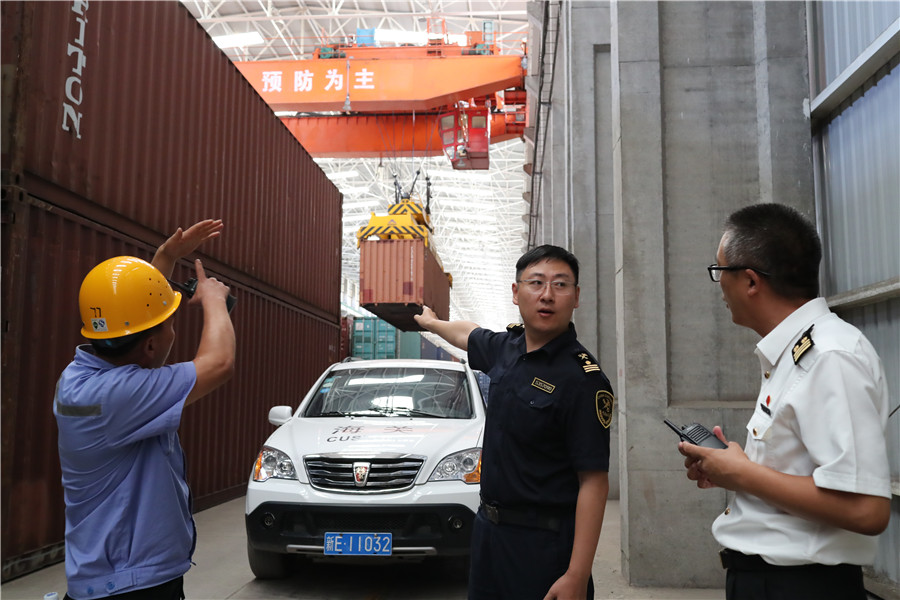Freight trains on track to drive Xinjiang economy


The network's brain
If the railroads and pipelines running through the Alataw Pass are the arteries of the booming crossborder trade, Urumqi, Xinjiang's capital, is working to position itself as the brain.
That goal has been brought within reach by a smart, real-time monitoring system that consolidates freight information and train timetables for the China Railway Express.
The system is located at the Urumqi International Inland Port Area, a railway container distribution center of 67 square kilometers near the outskirts of the city.
Pointing to a giant screen showing trains in operation on a digital map, Ma Chunlei, an official with the port area authority, was unable to hide his pride in the system, which will be officially rolled out in August.
The map is flanked by charts displaying different types of freight, trade volumes for inbound and outbound goods, and the number of trains currently passing through the region.
The highlight of the screen, according to Ma, is that it calculates how many cargo cars are empty and available for reloading during the each train's journey across the Eurasian continent.
"For example, we can tell that this train from Duisburg is scheduled to arrive in Urumqi in two days and it has 10 empty cars," he said, circling the number with a laser pointer.
"The capacity of those 10 freight cars could easily be wasted if we did not have access to such information and could not share it with businesses along the route," he added.
"Thanks to the smart system, businesses in neighboring Kazakhstan can stockpile goods at designated stations (to be loaded) before the train continues on its journey to China."
Seeing trains rushing by with plenty of unused space has long been a sore point for freight train operators and managers, because low utilization of the cargo capacity raises running costs and makes the service less appealing to potential customers.
"The system collects and incorporates the operational information of all the freight trains involved in the China Express Railway into one holistic platform," Ma said.
The inland port cooperates with major rail service providers and customs in Kazakhstan, Russia and Germany, as well as major ticket-booking portals for ferries and railways across large parts of Europe.
"At present, no other trade hub in China is able to amass such a huge trove of data as we do with our system," Ma said.
According to the port area authorities, during a recent trial of the system freight trains returning from the West were carrying goods at an average 80 percent of their full capacity.
























